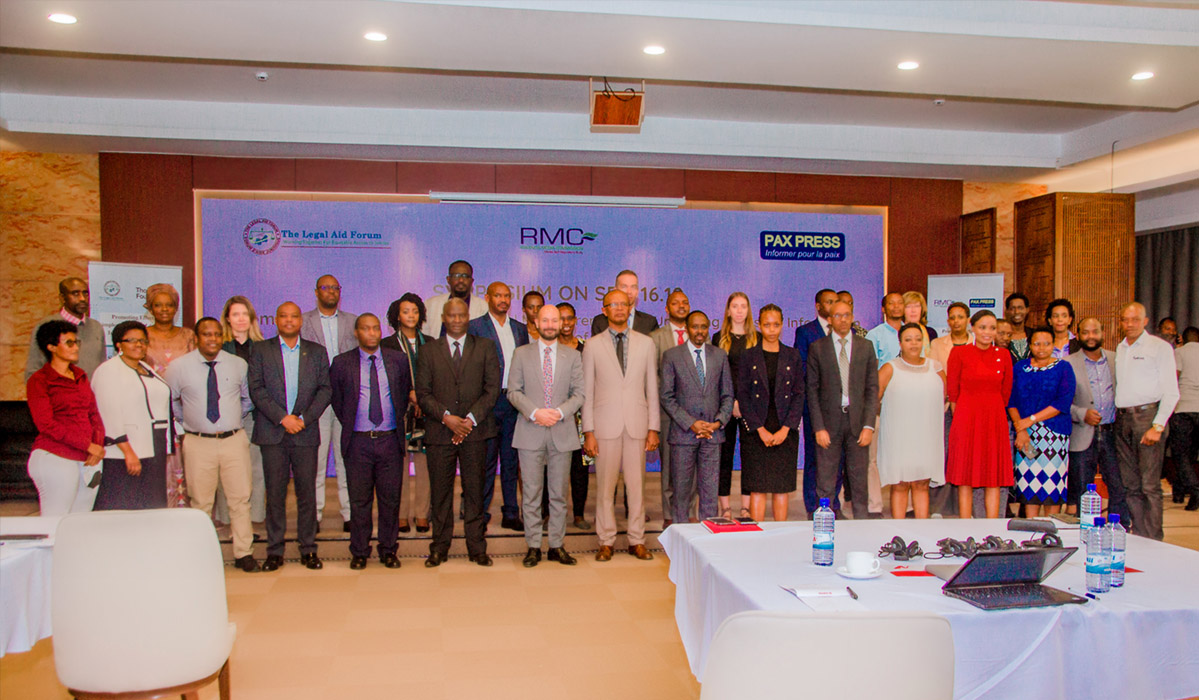
Rwanda to revise media policy after 11 years

The Ministry of Local Government has embarked on consultations with media practitioners and activists to revise the media policy that was established in 2011.
Speaking, on Friday, during discussions on media regulation amidst social media trends while upholding public access to information and freedom of speech, Peacemaker Mbungiramihigo, the Media Policy Analyst at the ministry of local government-said that the new media policy seeks to move with times and the current technology trends in media.
“We are receiving different ideas from media practitioners, public and private institutions, civil society, development partners in the media sector, universities and others that are going to guide us in revising the media policy,” he said.
He said that the new policy will also trigger a review of some laws.
“The policy will provide guidelines on how the media sector can be provided with financial capacity from government and its partners, private sector as well as non-government organizations,” he said
The guidelines, he said, will define the source of financing for the media sector.
“Without financial capacity, the media could not be productive. The mechanisms to finance the media sector will also be drafted in the new policy that could be adopted soon,” he said..
Albert Baudouin Twizeyimana, the coordinator of PAX PRESS, a network of journalists that promotes peace and professional reporting said that the new media policy should guide on how journalism and communication can be taught in universities in the new era, how journalism can be done in line with the technology trends and how media sector can become financially stable.
“The views we have gathered show that financial constraints are an urgent issue that should be addressed in the new policy. Government should set aside a budget for the media. Others include capacity building and improving quality education in universities,” he noted.
Solange Ayanone, a journalist and media trainer said that the government should charge a small fee from different people and businesses in terms of taxes so as to get finance for the media sector.
“What journalists do is in the interest of citizens and therefore citizens who access the information can contribute to media development through deducting a small fee from taxes they pay,” she made a case.
Ayanone also pointed out that the future of media should be in the hands of investigative stories that are different from those on social media and adapt to technology advancement in media.
While some argue that journalists should have studied journalism and communication in university, Berna Namata- a journalist and an editor at Rwanda Today said:“We need doctors, lawyers and other experts in journalism because they understand the details. We need an overhaul that allows people from other professions to be journalists as long as they are interested.”
According to Rene Anthere, Rwanyange, a journalist from Panorama reiterated, “A journalist should be a graduate from university whatever they might have studied. Those who did not study journalism at university should first undertake professional training for a certain period.”
Regulating social media
Once financially sustained, Mbungiramihigo said, journalists could not rush to resort to using social media such as YouTube with the aim to generate money in an unappropriated and unethical way that could destroy the country in one way or another.
On the other hand, Solange Ayanone argued that there is a need for a social media self-regulatory body.
“The new policy should guide how social media should be regulated” she said.
Jean Paul Ibambe, Program Manager at the Legal Aid Forum one of the partners facilitating the consultations for the policy said the research they have conducted has recommended promoting Media/digital information literacy to promote responsible use of media contents among citizens, raise their awareness on information access and their rights and responsibility.
The recommendations also include supporting the media with financial incentives such as tax exemptions or reduction, and capacity building to enhance professionalism.
Review and restructure RMC
There is also a need for reviewing and restructuring Rwanda Media Commission (RMC) to make it a robust self-regulatory body, research recommends explaining that, “RMC is currently underfunded and understaffed, affecting its ability to conduct effective and sustainable media self-regulation.”
“The Government of Rwanda should collaborate with the international community and owners of global techs to explore ways of regulating digital platforms to curb hate speech often spread through misinformation and disinformation.” he added.
There is a need to conduct an intensive study on how an ethics based system of media regulation can be promoted online in order to respond to the current digital realities and the attendant challenges of media illiteracy, he added.
British High Commissioner to Rwanda, Omar Daair said media freedom and access to information is paramount.
However he said: “We also see the media and journalists who use information irresponsibly.” Adding that the UK is happy to support the media sector in Rwanda to build its capacity to continue promoting good governance and social economic development.
“Rwanda has made progress and positive reforms including decriminalization of defamation, access to information law and self-regulation policy,” he said.
Our Partners

















